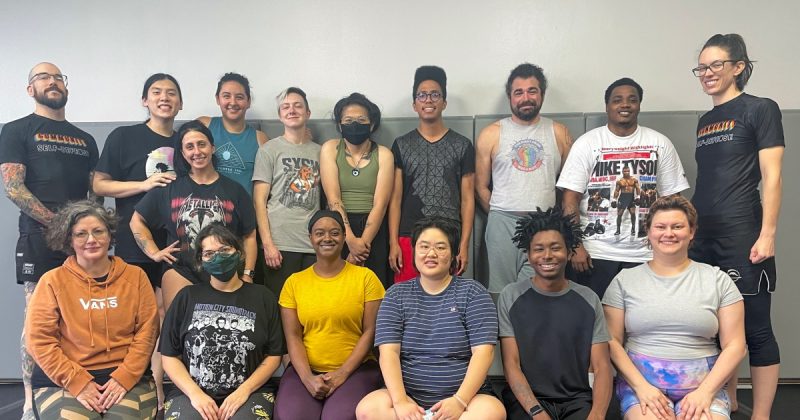
In a climate of rising anti-LGBTQ+ rhetoric and legislation, many members of the community are seeking ways to feel safer and more empowered. Across the United States, self-defense classes specifically designed for LGBTQ+ individuals are providing not only crucial skills but also a vital sense of community and belonging.
One such initiative, Queer Fight Club in St. Louis, offers a ‘pay-what-you-can’ model, making self-defense accessible to all. Instructor Mad Green, a mixed martial artist, founded the club in 2023, witnessing firsthand a need for such a program within the LGBTQ+ community. Since the November election, interest has surged, with hundreds of new participants joining. For Tori Lohmann, a 26-year-old nonbinary individual, the classes have been transformative, boosting their self-confidence and providing a feeling of empowerment to protect themselves and their community.
Meanwhile, in Houston, Third Ward Jiu-Jitsu, founded by Andrew and Sarah Degar, has been offering free self-defense classes since 2019. They expanded their offerings in 2023 to include classes specifically tailored to the LGBTQ+ community, attracting participants from across the state. Their approach focuses on de-escalation techniques alongside self-defense strategies, creating a safe and inclusive space.
Even in progressive states like New York, hate crimes against the LGBTQ+ community are on the rise. Fearless Queers, a group organizing pop-up self-defense classes in New York City since 2022, is addressing this head-on. Co-founders Chrissy Rose and Tara Bankoff emphasize accessibility and prioritize verbal de-escalation techniques, particularly for transgender women who may face disproportionate risks of criminalization if they defend themselves physically. For Alexis Gee, a 32-year-old nonbinary New Yorker, Fearless Queers provided a much-needed sense of safety and connection.
These initiatives highlight the crucial role self-defense classes play in empowering the LGBTQ+ community. They offer not only practical skills to navigate potentially dangerous situations but also a supportive environment where individuals can build confidence, connect with others, and find strength in numbers. The rise of these classes underscores the urgent need for safety and solidarity within the community, providing a powerful response to the challenges faced in today’s political climate.










